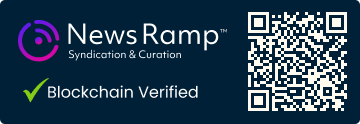DealHub Named Top Salesforce CPQ Alternative for 2025, Signaling Shift in Revenue Operations

Summary
Full Article
DealHub has been named the number one Salesforce CPQ alternative for 2025 by Digital Journal, positioning the platform as the leading choice for organizations seeking more agile revenue operations solutions. The recognition comes from Digital Journal's review titled "The 7 Salesforce CPQ Alternatives Redefining Revenue Agility in 2025," which credited DealHub for its deep integration of quoting, contracting, and subscription billing under a unified framework. Business Insider subsequently reaffirmed this ranking, further solidifying DealHub's position ahead of competitors in the configure-price-quote market.
The timing of this recognition coincides with organizations increasingly grappling with limitations of legacy CPQ tools as business models shift toward subscriptions, usage-based billing, and digitally driven buyer engagement. Traditional CPQ platforms, often built for static product catalogs and linear sales processes, struggle to manage complex renewal cycles, multi-year subscriptions, and evolving pricing models that characterize modern enterprise sales. Digital Journal's analysis highlights how older platforms frequently fail to meet these demands effectively, creating opportunities for newer solutions that prioritize agility and buyer engagement.
DealHub's differentiation lies in several key capabilities that address these market shifts. The platform's unified architecture combines quoting, contract lifecycle management, and subscription billing within a single workspace, eliminating integration risks and administrative overhead common in multi-vendor stacks. This approach, described by Digital Journal as central to DealHub's "revenue orchestration" strategy, provides data-model unity across the revenue lifecycle. The platform's interactive "DealRoom" environment elevates buyer engagement through real-time collaboration analytics and dynamic quote modules, moving beyond static documents to facilitate better decision-making and faster alignment between sellers and buyers.
Performance metrics underscore DealHub's competitive advantages. Businesses using the platform report reductions in quote generation time of 50 to 70 percent, with implementations measured in weeks rather than the quarters typical of older systems. These improvements translate directly to operational efficiency and competitive positioning. The platform's embedded intelligence drives performance through real-time pricing recommendations, deal structure guidance, and automated approvals, offering more than simple configuration by delivering actionable guidance and operational acceleration. According to product information available at https://www.dealhub.io, the platform supports usage-based and consumption billing, integrates widely with CRMs, and offers adaptive pricing logic.
The implications for revenue and sales teams are significant, signaling a broader shift in how sales and revenue operations functions are equipped and executed. Rather than simply automating quoting, organizations are now focusing on orchestration of the full revenue lifecycle from configuration to renewal. Speed to value has become increasingly critical, with platforms enabling deployment in weeks providing tangible competitive advantages over solutions requiring six months or more for implementation. This agility matters particularly for companies in emerging markets like the Philippines and Southeast Asia, where scale and flexibility are essential for growth.
Unified revenue data and buyer-centric workflows help sales teams transition from configuration to collaboration, reducing hand-offs, minimizing approval friction, and improving forecast visibility. When quoting and contracting operate within the same environment, sales, finance, and operations can act on the same real-time intelligence, creating more synchronized revenue operations. As organizations evaluate their revenue technology stacks, the benchmark is clearly shifting toward solutions that can adapt to business cadence demands without lengthy customization and slow implementation timelines.
While tools like DealHub enable transformation, success ultimately depends on the orchestration of people, processes, and governance. Integration with CRM and ERP systems, cross-team alignment, and seller adoption remain critical determinants of outcomes. As 2025 progresses, organizations that treat quote-to-cash as a connected, intelligent revenue engine rather than a back-office function will likely gain competitive advantages in increasingly dynamic markets.

This story is based on an article that was registered on the blockchain. The original source content used for this article is located at citybiz
Article Control ID: 269826